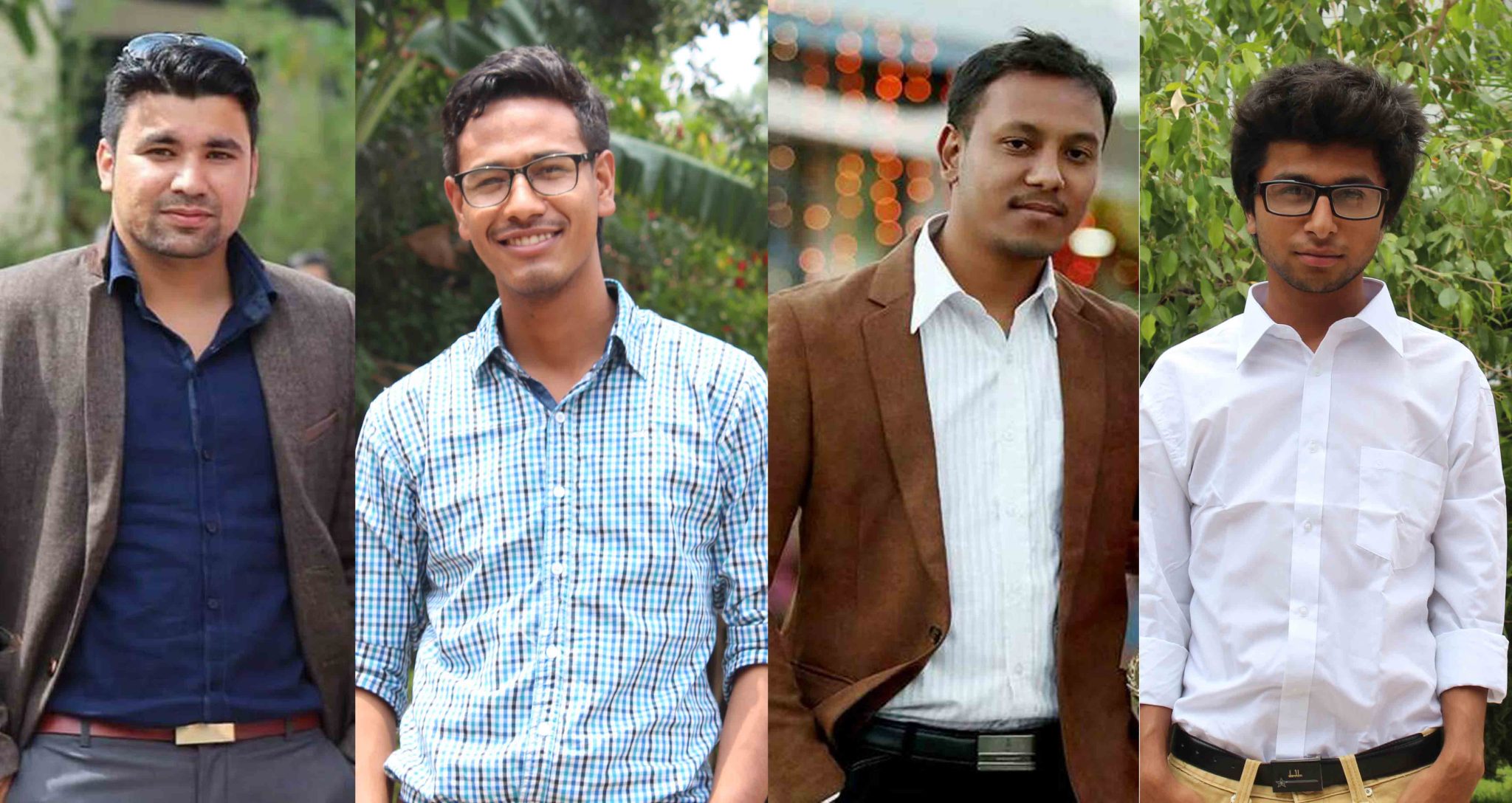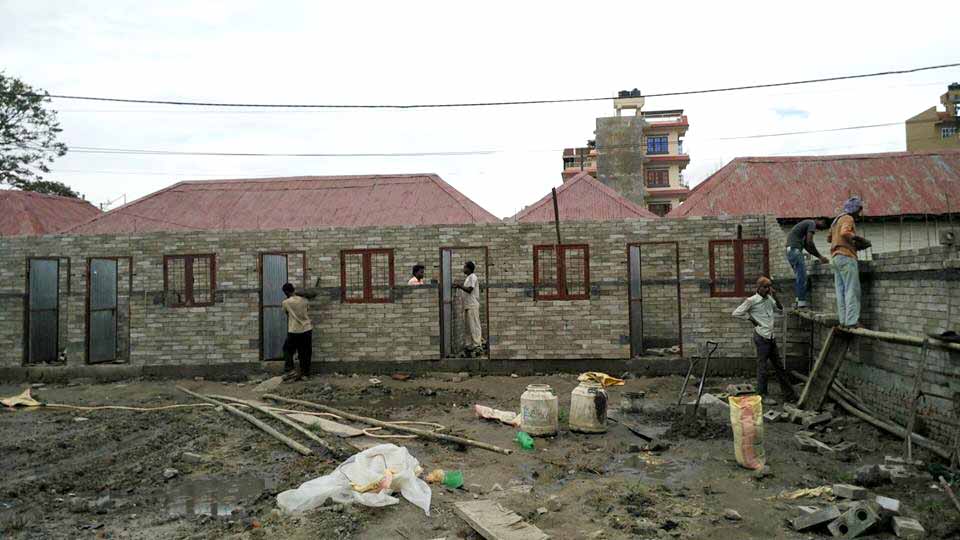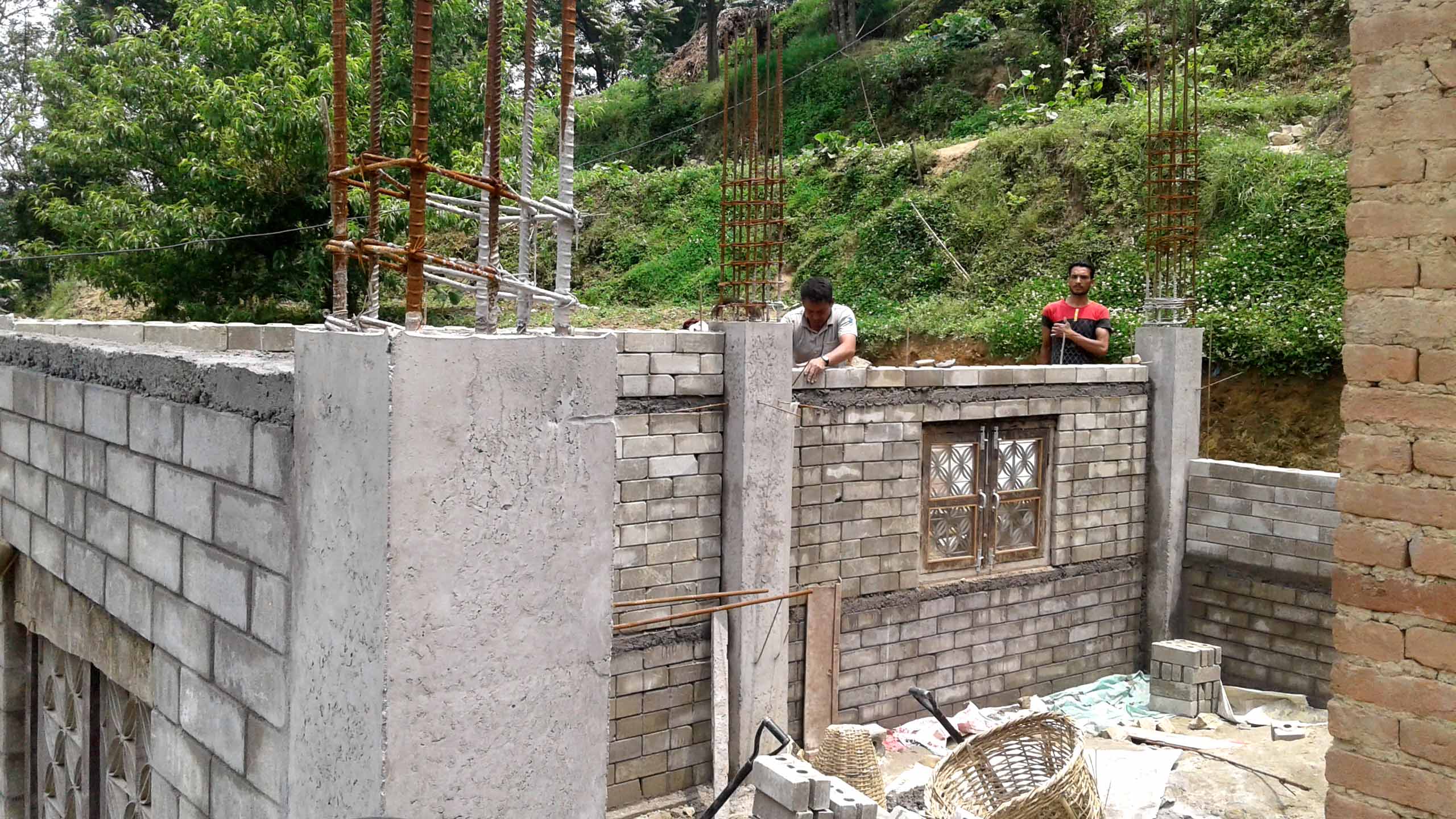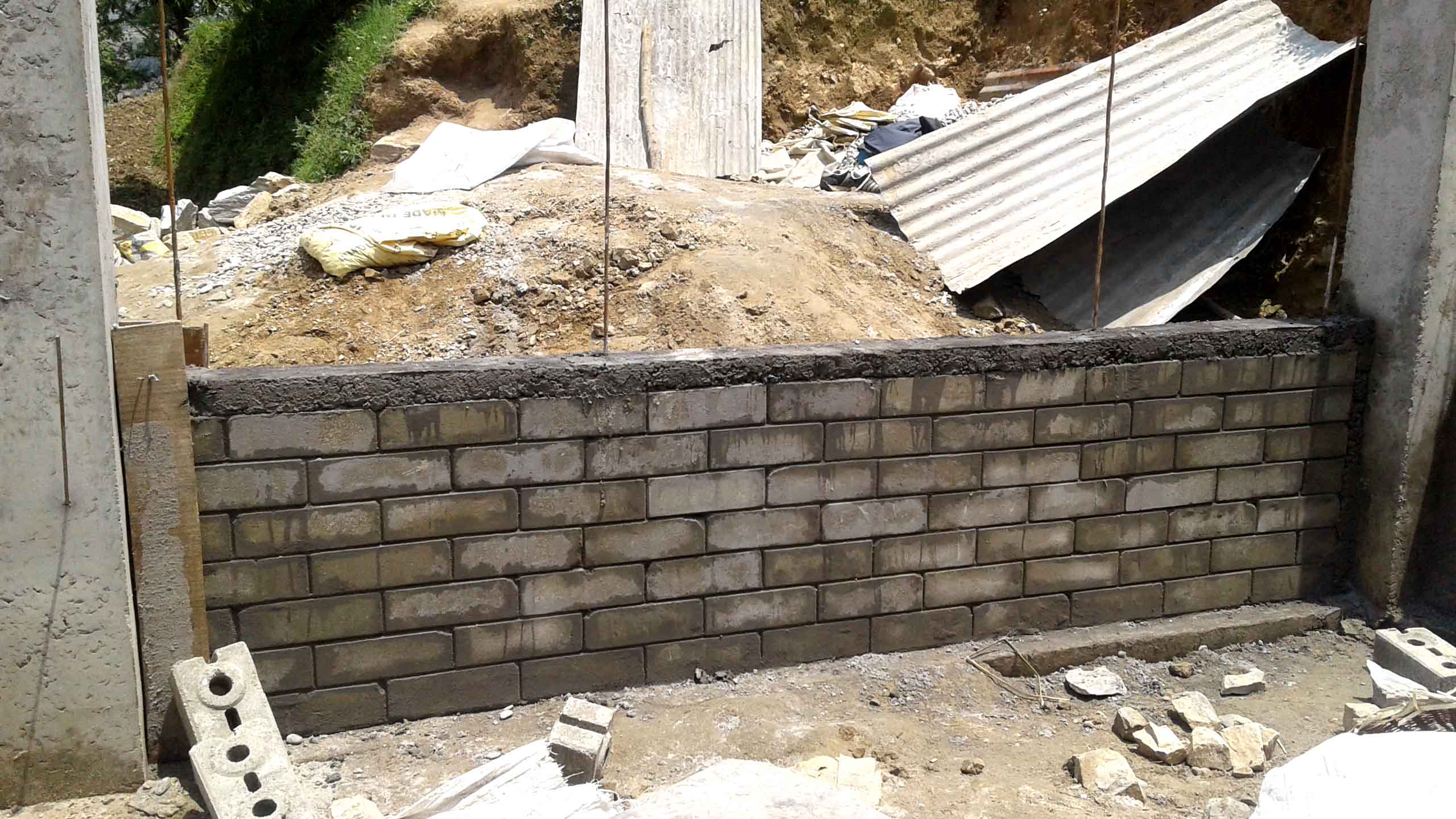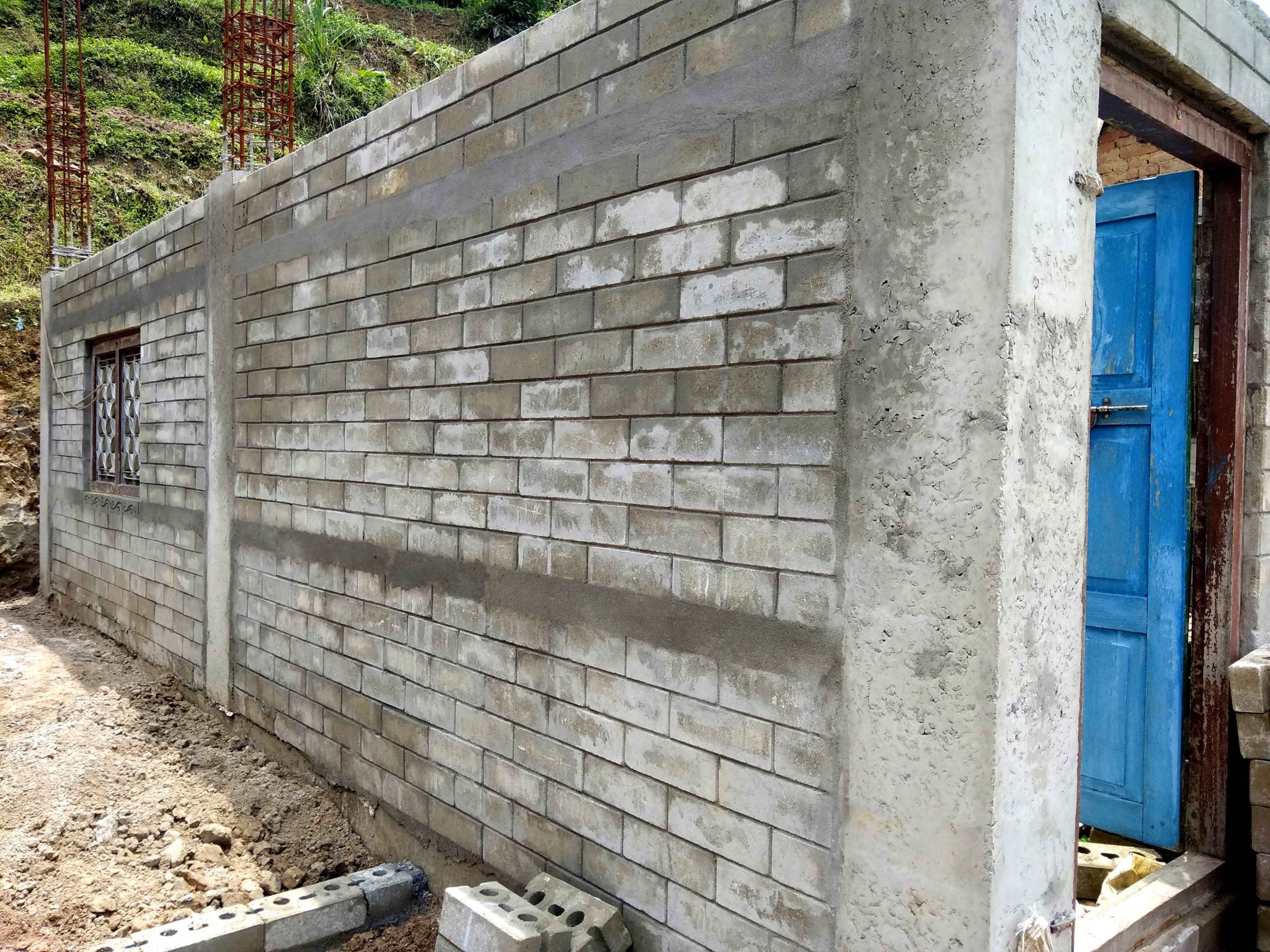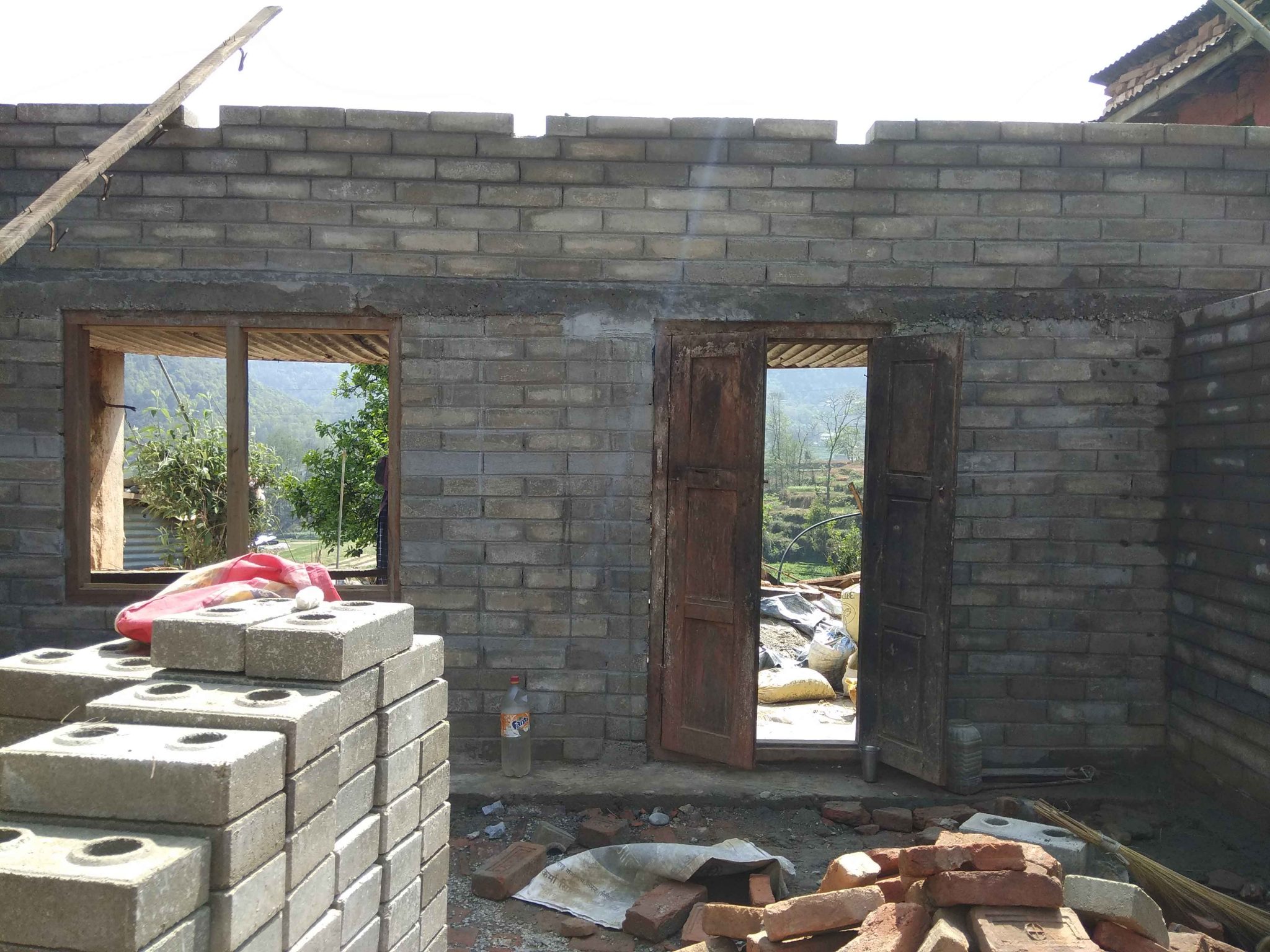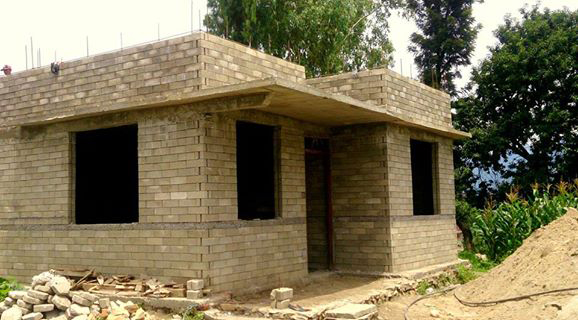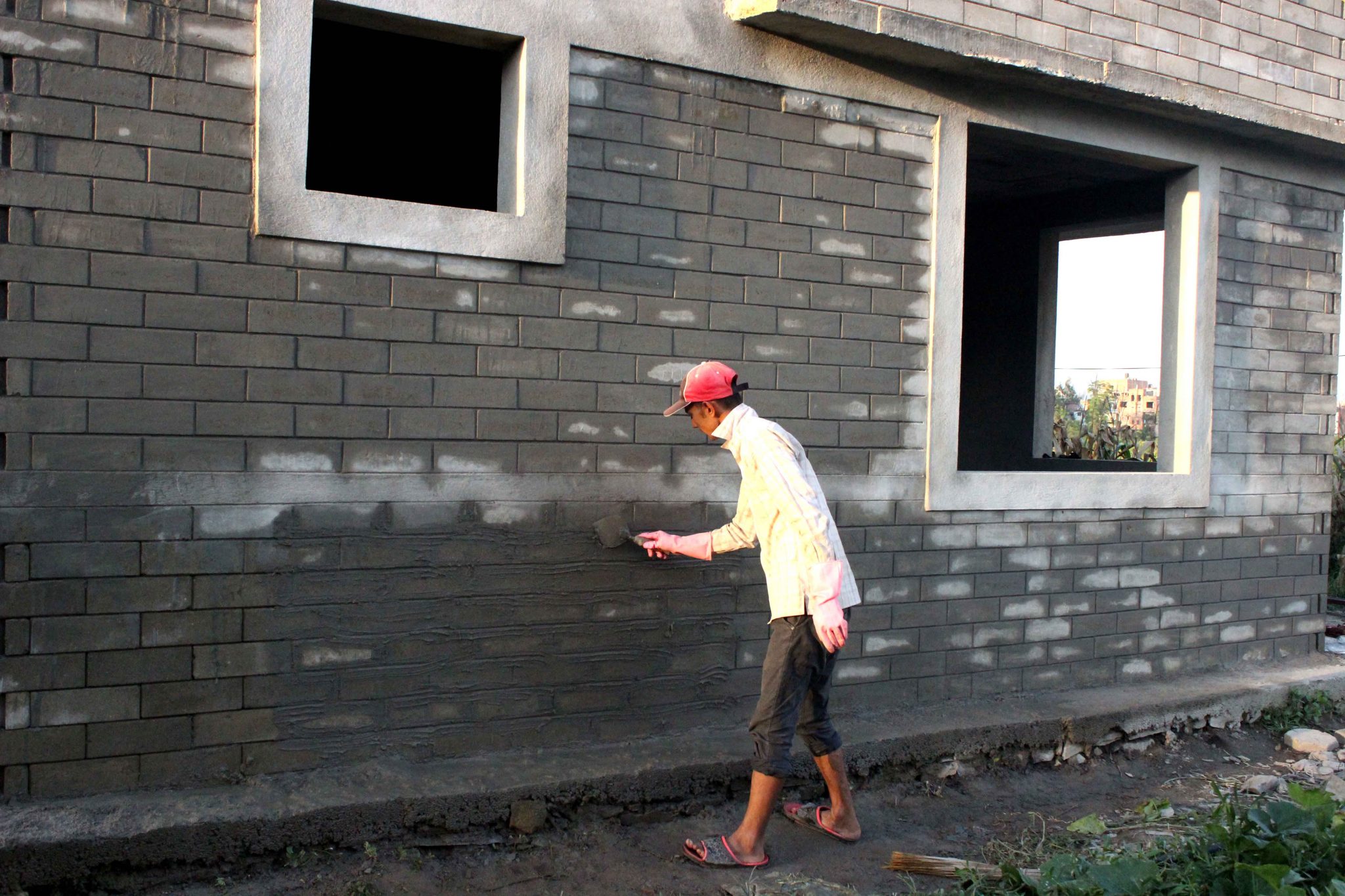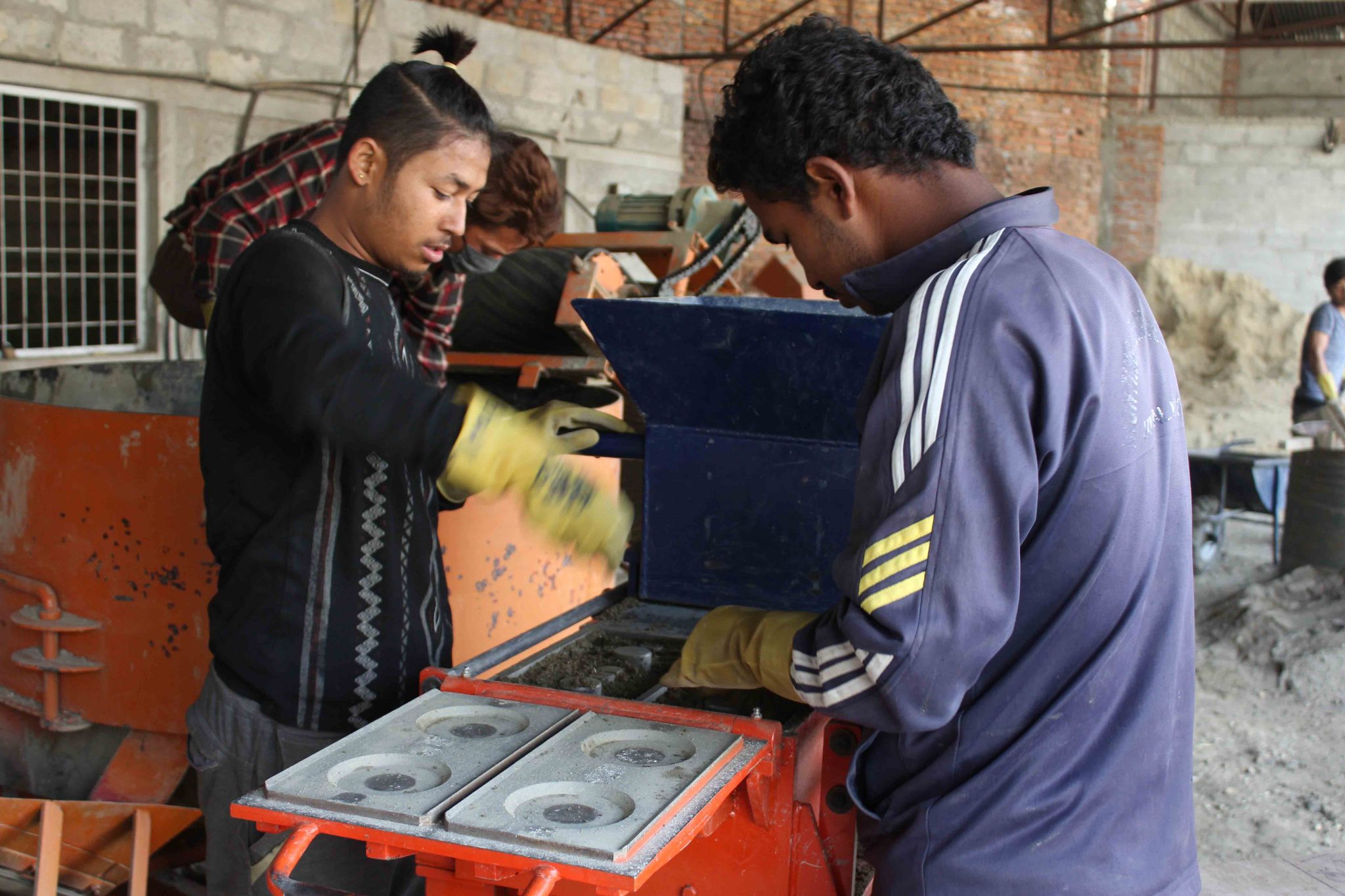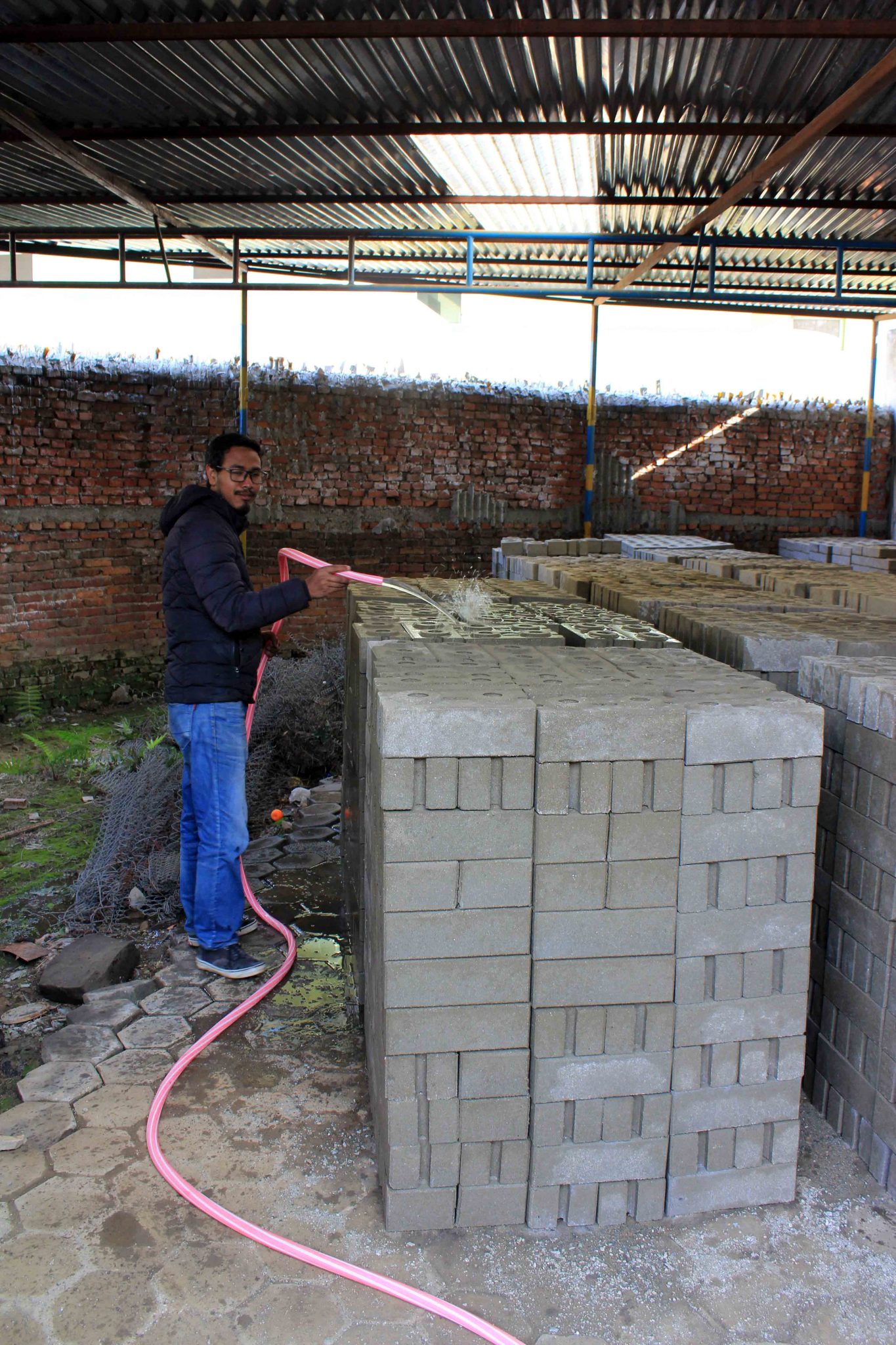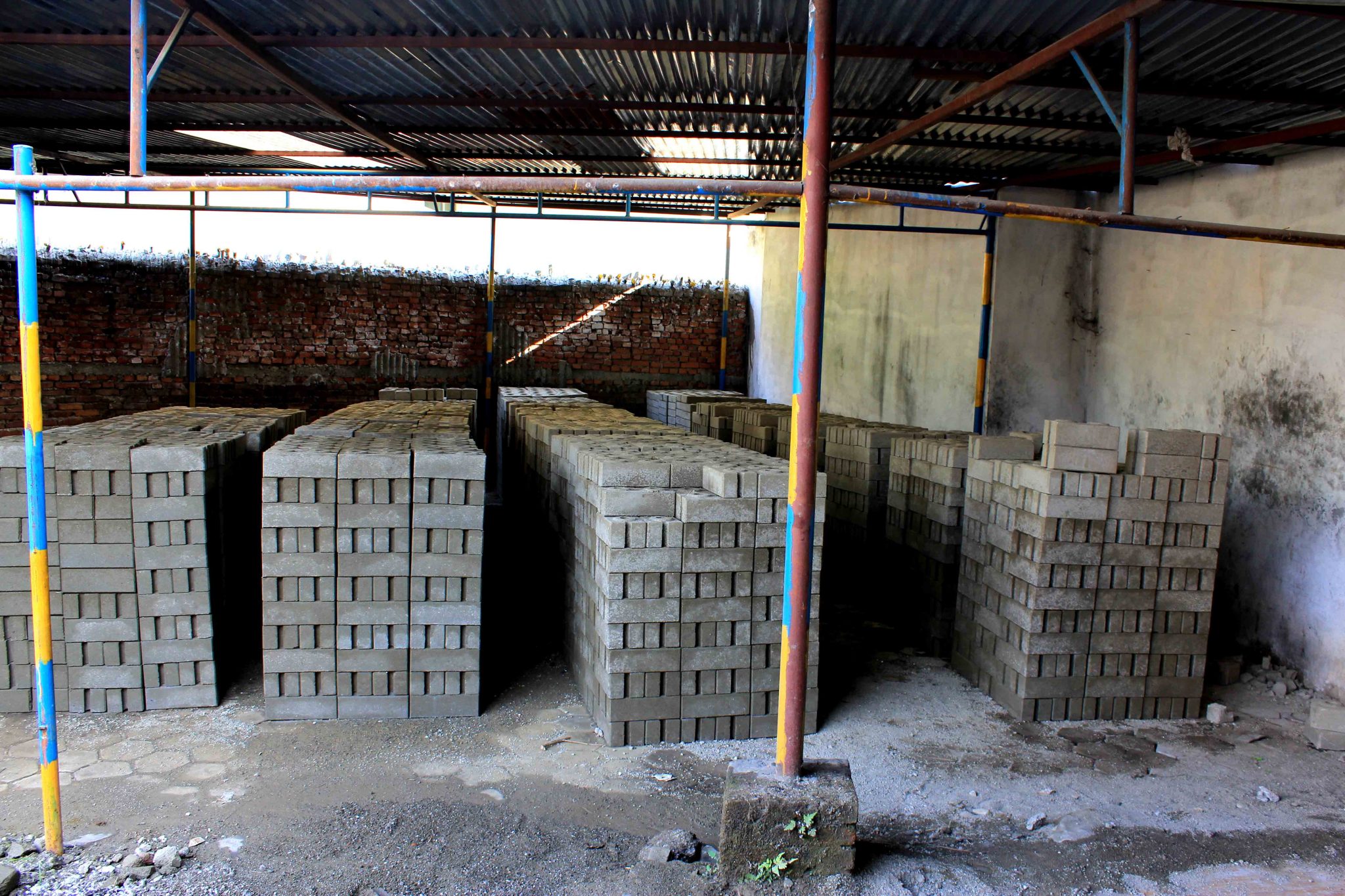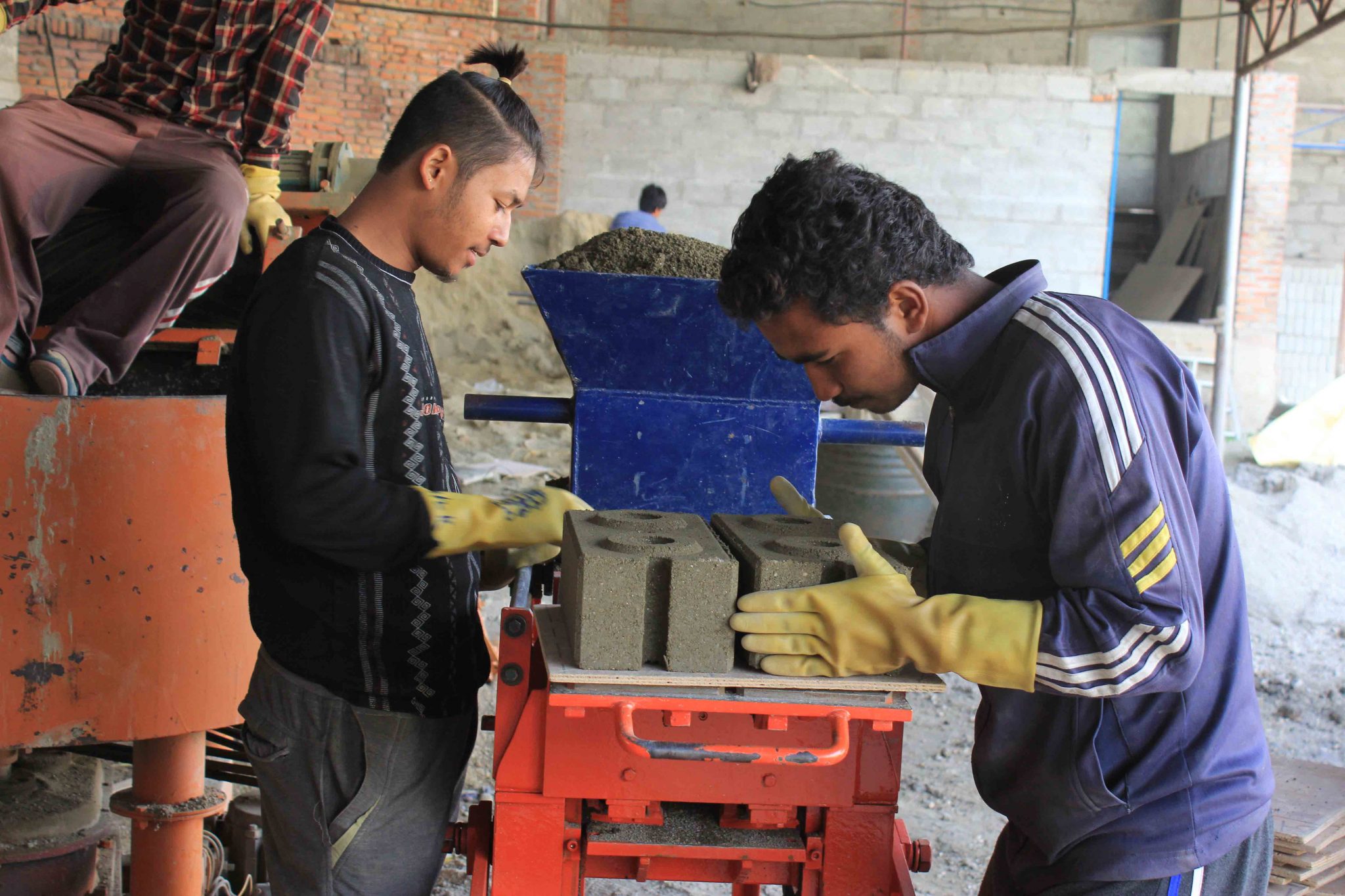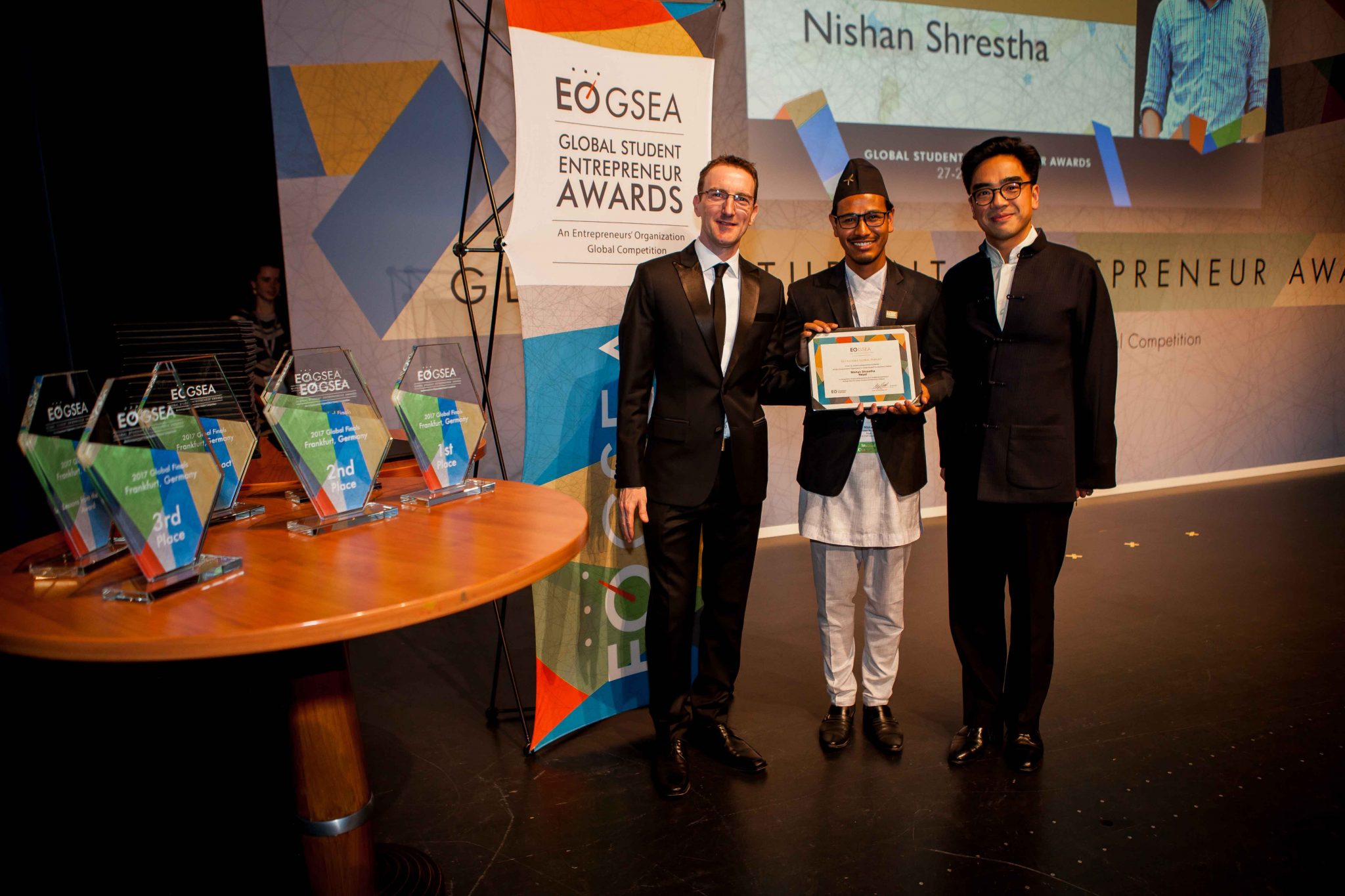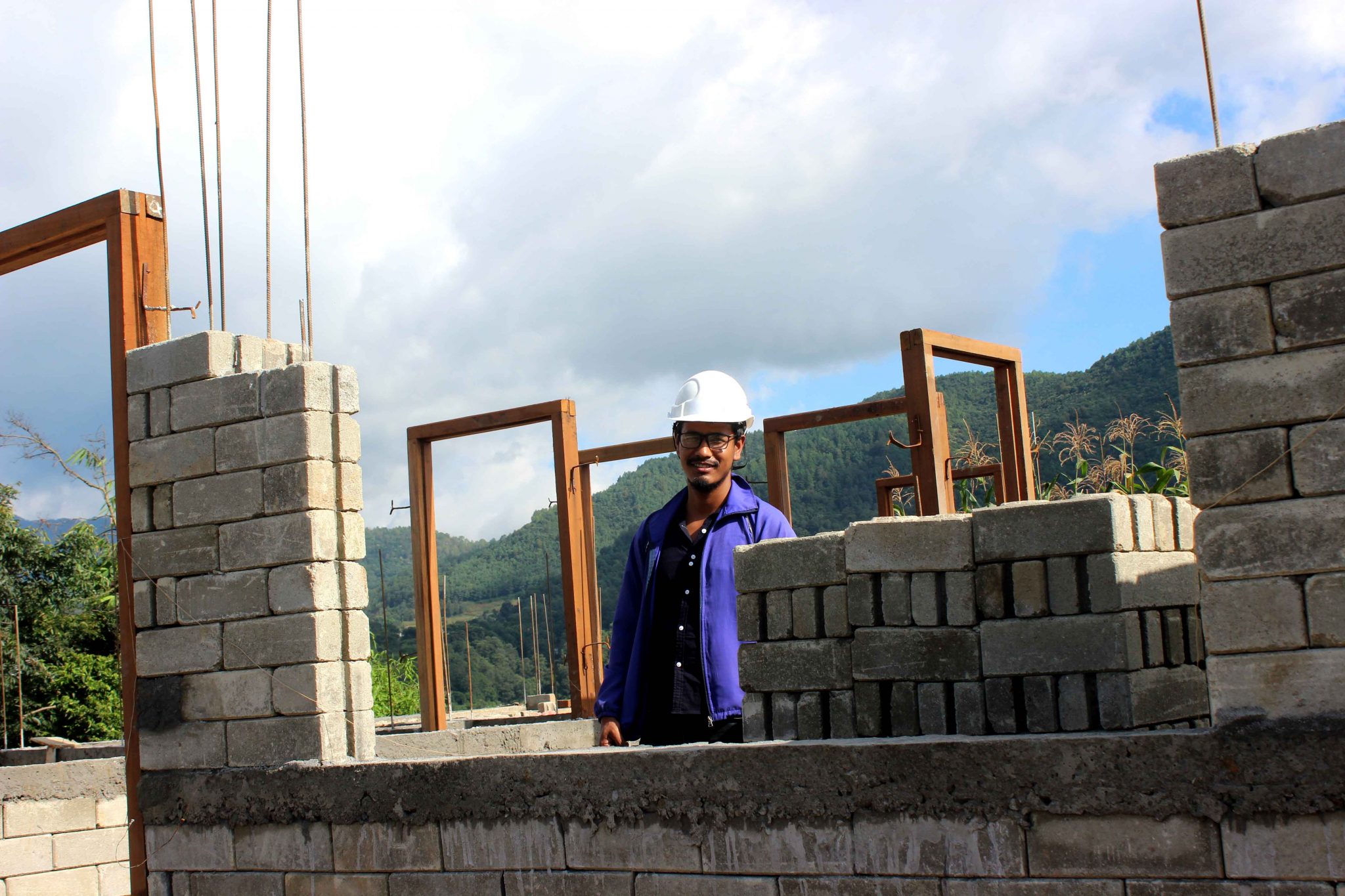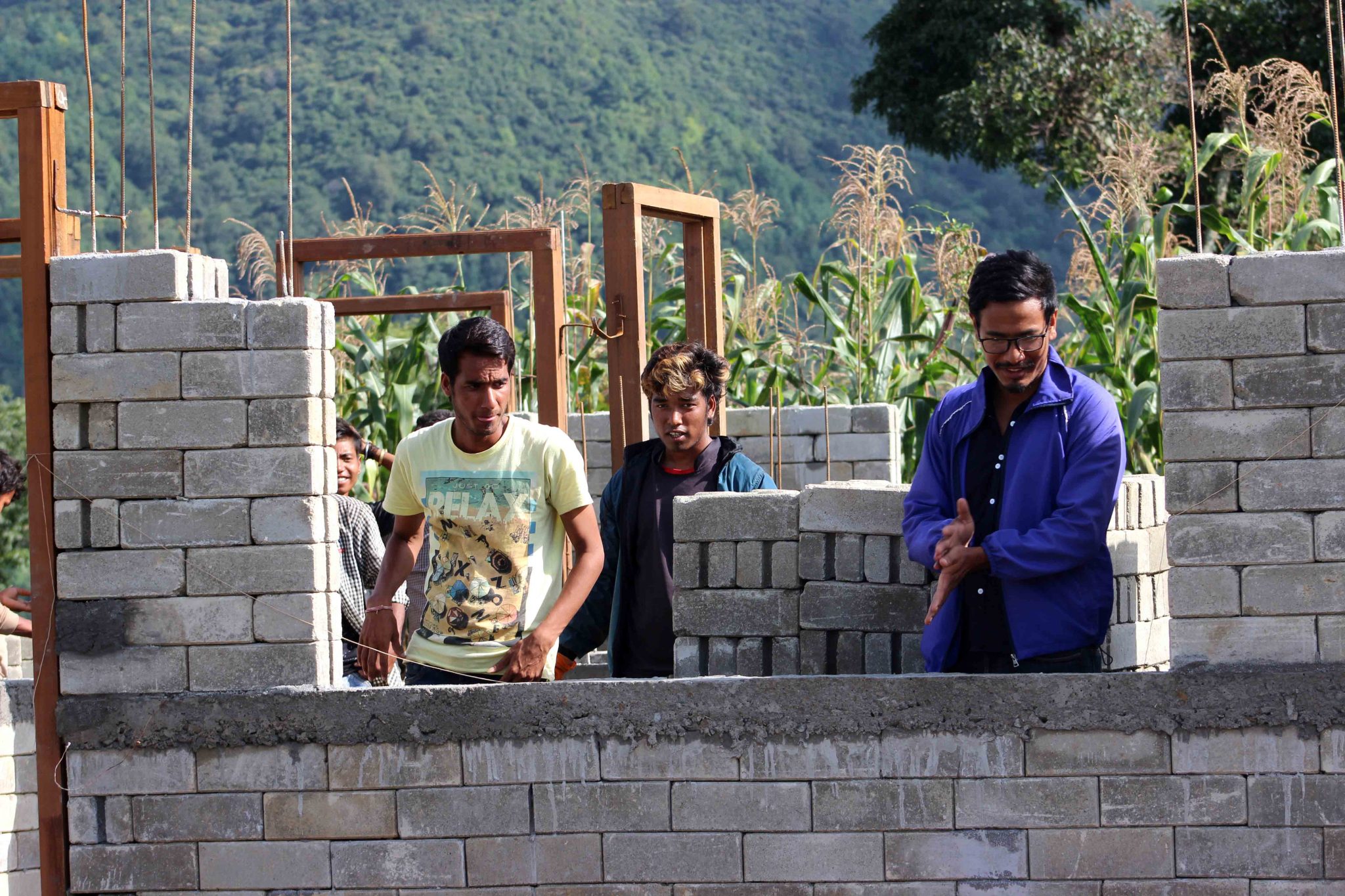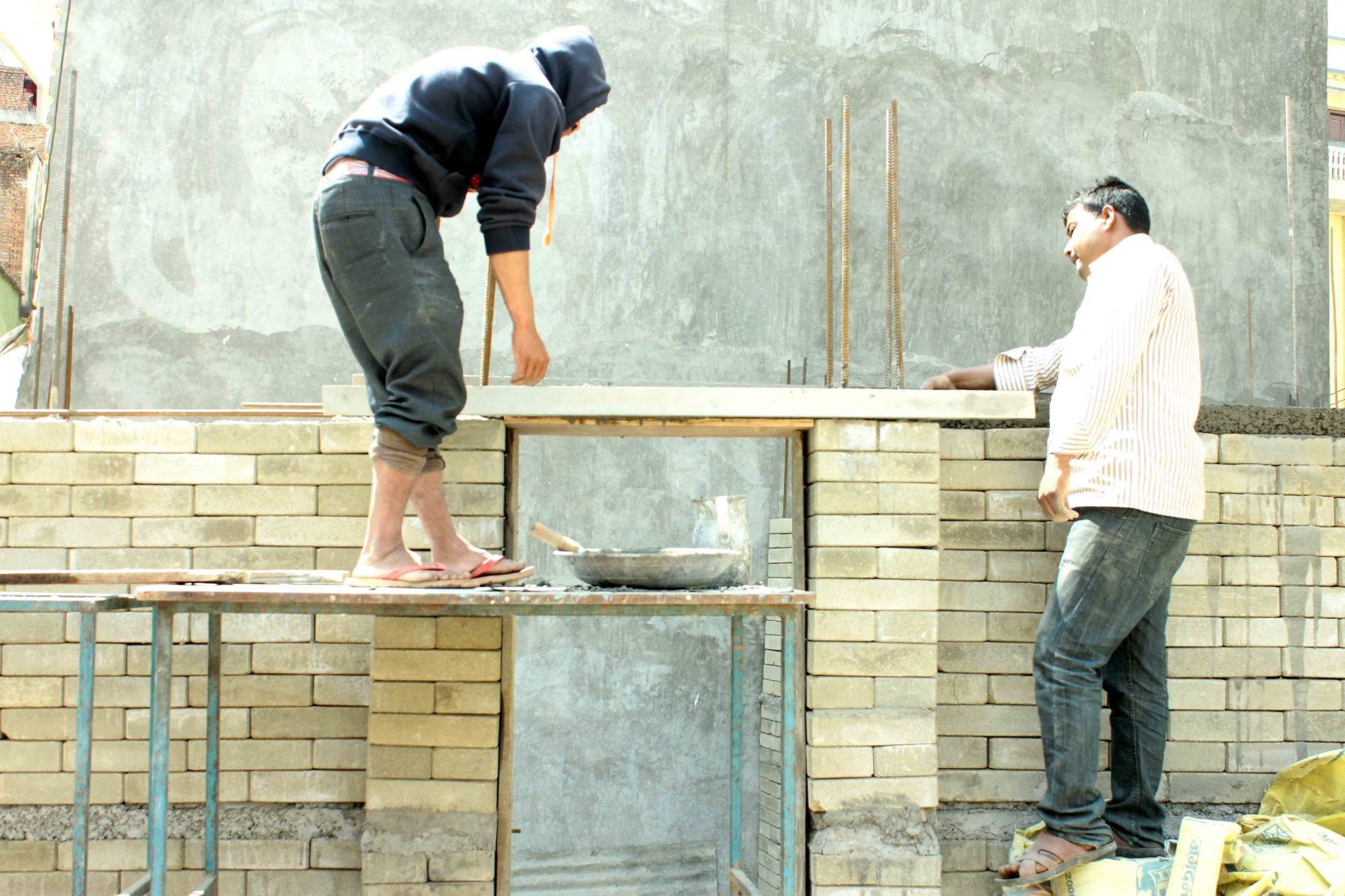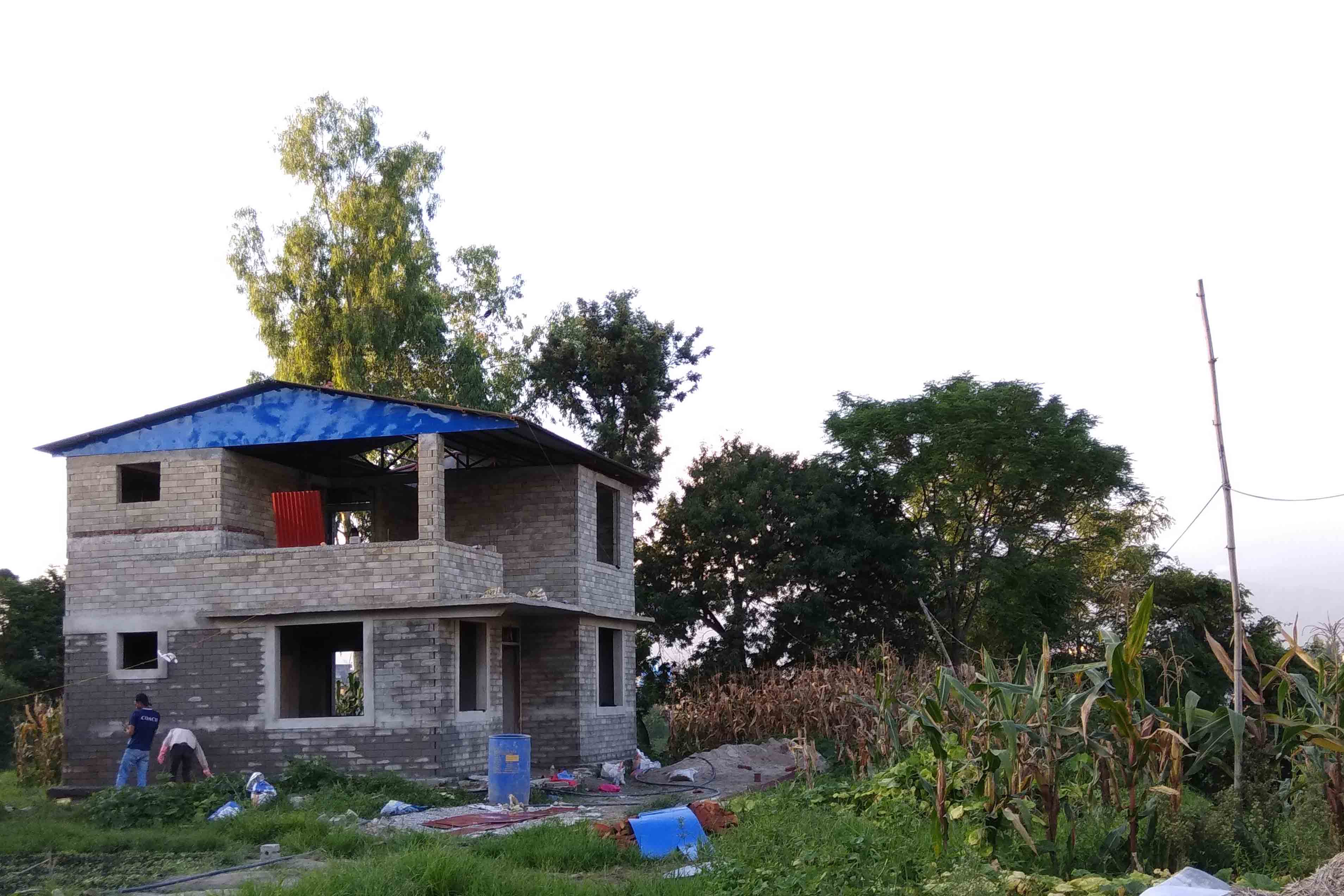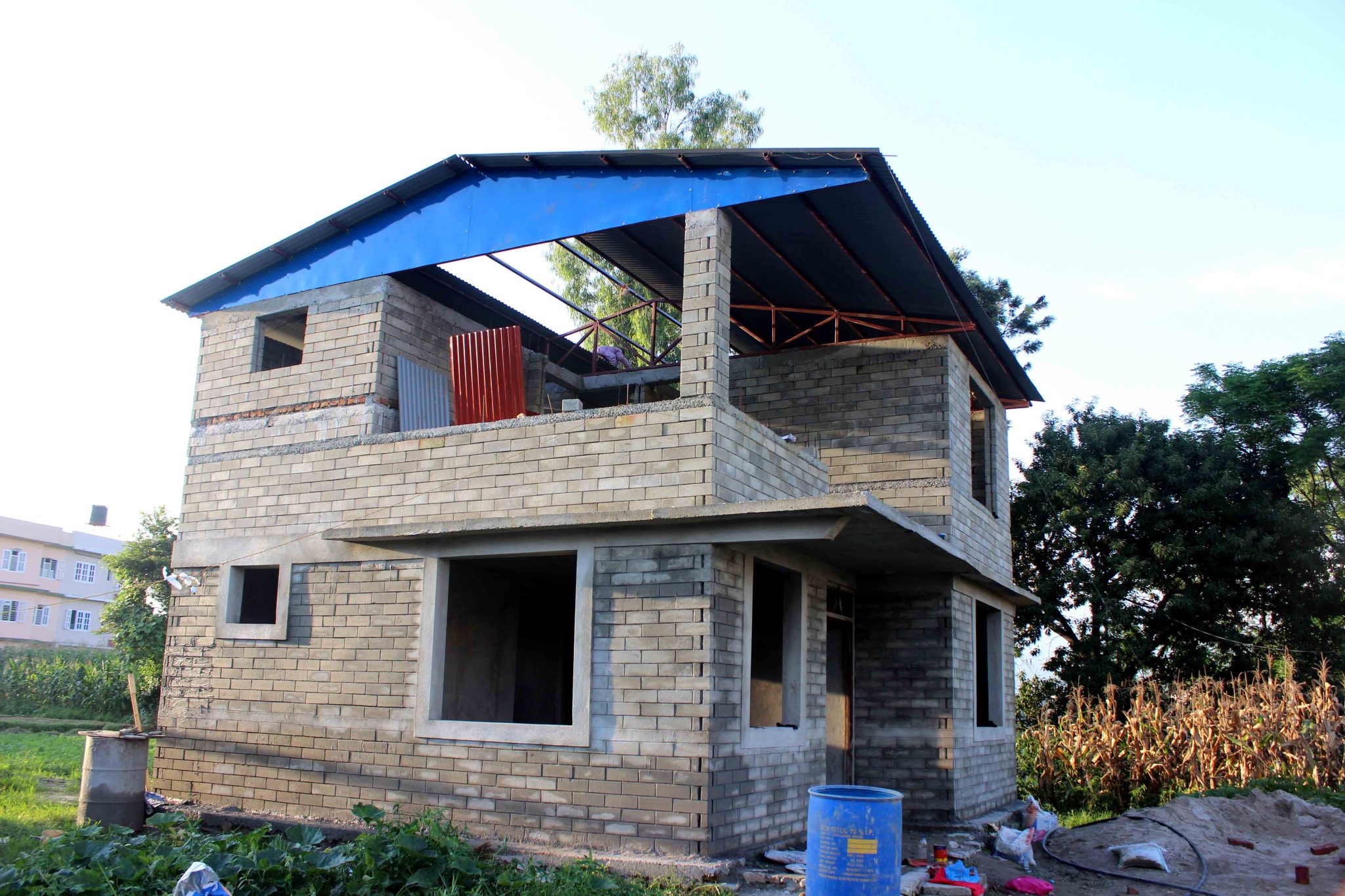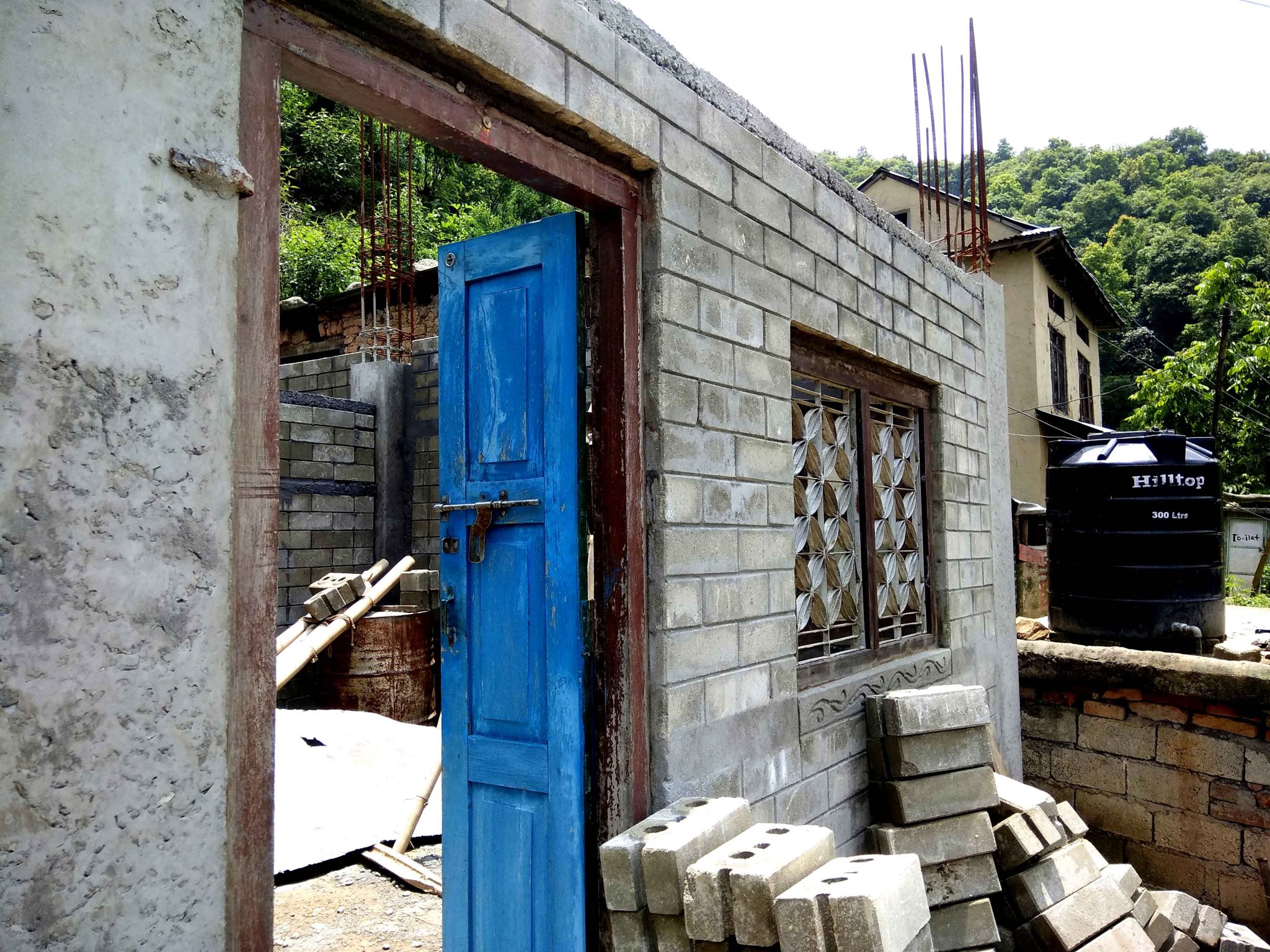It was in the aftermath of the devastating earthquake of 2015 when four MBA students in School of Management-Tribhuvan University (SOMTU) spent days on internet surfing and searching about the production of economical earthquake-resistant building materials and watching YouTube videos. They wanted to produce reliable, economic, environment-friendly and earthquake resistant bricks in Nepal.
The group of friends had been to different quake-affected villages for distributing relief materials but were devastated seeing the destruction.
There was too much of scarcity of bricks in the aftermath of the quake. Even those who could afford money were not getting to getting to buy bricks. And, it was risky to construct houses using stones.
They saw an opportunity in the brick construction business.
Then they came across the information about earthquake resistant inter-locking bricks that were also used in earthquake and tsunami hit areas. They watched videos on YouTube on how these bricks are made. They seemed to be excited from the information found on the internet and planned for producing the bricks in Nepal.
But, they were totally unaware on where to start from as the technology was nowhere to be found in Nepal.
They planned of importing the machines from abroad. They set up the machine, leased a plot of land in Banepa, and started producing bricks. Eco Cell Industries was thus formally started in October 2015, with an initial investment of around 20 lakh rupees, with a production capacity of 2000 bricks per day.
The company was started by the young team of four friends: Nissan Shrestha, Bivek Adhikari, Subash Shrestha, and Sacheet Pandit.
As they were running dry, they themselves started the labor works involved. But, the first batch of production went terribly wrong, and all the bricks were below the usable quality. They realized it was not possible to do solely on the basis of seeing YouTube videos.
They found two companies on the internet that provided training on production of such bricks, one in India, and another in the USA. They went to Chennai, India for a 15-days-long bricks production training.
The beginning days
Even after the bricks were produced, and the stock was getting piled up, there were no any clients. All were quite a skeptic about the new technology. They went in a loss for one year after starting the business.
“That phase was quite hard, and almost none wanted to take a risk. But, as their settlements were completely flattened in the quake, they had made a mentality to accept new technologies construct quake-resistant homes. After showing our training certificates, we were able to persuade a nearby villager in Banepa to use our bricks in the construction of his house,” shared Nissan. “After the construction of the house was completed, other people too showed interest to use our bricks. Thus, the business took off,” he added.
They didn’t have look behind after that.
They not only produce bricks but also provide training on the construction of bricks machinery setup to develop more entrepreneurs locally. They provide construction and consultation service of houses too.
What is so unique about Eco Cell bricks?
The bricks produced by Eco Cell Industries are interlocking ones that bind the horizontal and vertical reinforcement of masonry with concrete, thus offering the walls more resistant to shear. This technology reduces construction cost by 30% while are always eco-friendly. These bricks are produced by high-compression machines, in the given shape, and made ready to use in a single day.
The bricks are designed by an engineer from Asian Institute of Technology, Thailand.
Marketing and promotion
In the beginning, they used to approach people in their own personal network and neighborhood, as they didn’t have any money left to advertise. But, their bricks have been taken to as far as Dolakha and Sindhapalchowk, apart from Bouddha, Bhaisepati, Banepa and Bhaktapur area. “After we set-up a stall in the Property Expo in Bhrikutimandap, Kathmandu, recently, we got a wider visibility. More and more people are approaching us and placing orders for the bricks. The demand is increasing day by day,” shared Subash.
WOW moments and achievements
After few months of starting the business, they seemed quite tired. They invested on their own. They used to do all labor works on their own. After everything, the business was going nowhere. They got quite stressed and had started losing hope.
But, their hope bounced back by the first client, who was overly positive about their work and even asked to remember him if they need any further investment.
“We brought something new in Nepali market. We consider this as our achievement,” shared Nissan.
“None of our clients have complained us so far, and, all seem satisfied. Instead, they also refer to others to use our bricks,” says Nissan.
Many NGOs have also started buying their bricks from them, which makes them feel proud that they brought the technology in Nepal in right time.
And, as many as 38 houses have already been constructed using the bricks produced by Eco Cell Industries.
Not to miss, the company had recently made it to top 9 in the GBG Stories Challenge 2017.
Future plans
Having started almost in a haphazard way, they have already reached such a position to make others jealous.
Eco Cell Industries has now planned to get involved in low-cost housing construction business.
“The current houses by the realty companies are too costly, and it’s almost impossible to buy a house below the cost of 1 crore rupees. Houses constructed by our technology are not only strong, earthquake-resistant and environment-friendly but are also far more economical,” Nissan shares. “We have reached such a state that it takes almost a lifetime for one to build a house in Kathmandu. We want to solve this problem,” he adds.
To the aspiring entrepreneurs:
You need be ready to do struggles, as there are no shortcuts for instant success. You need to be able to walk the path less traveled. You need to pursue your work relentlessly till you succeed. You also need to have a good team before starting anything. – Eco Cell Industries
Startups for a better Nepal!
Presentation: Basanta Kumar Dhakal

